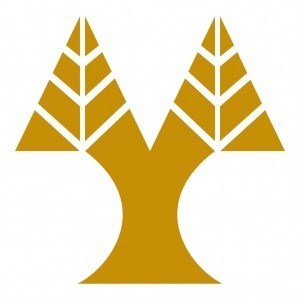Photos of university / #universityofcyprus
The Mediterranean Archaeology: Prehistory to Late Antiquity program at the University of Cyprus offers an in-depth exploration of the diverse and complex civilizations that flourished around the Mediterranean basin from the earliest human settlements to the end of the Late Antiquity period. This comprehensive program is designed to provide students with a thorough understanding of the archaeological, historical, and cultural developments that shaped the region over thousands of years. Students will engage with a wide array of topics, including prehistoric societies, the rise of city-states, classical civilizations such as Greece and Rome, and the profound transformations brought by Late Antiquity. The curriculum combines theoretical knowledge with practical skills, emphasizing archaeological excavation techniques, artifact analysis, and critical interpretation of material culture. Through coursework, fieldwork, and research projects, students will learn to analyze archaeological sites, interpret historical contexts, and appreciate the significance of cultural heritage within the Mediterranean realm. Faculty members are distinguished experts in archaeology, history, and ancient studies, facilitating a rich academic environment that encourages inquiry and interdisciplinary approaches. The program emphasizes the importance of preserving and understanding the cultural legacy of the Mediterranean, fostering skills in heritage management, conservation, and public archaeology. Graduates of this program will be well-equipped for careers in archaeology, cultural resource management, museum curation, research, and academia. They will also be prepared to contribute to the preservation and interpretation of archaeological sites and artifacts, promoting awareness of the cultural histories that connect civilizations across the Mediterranean. The multidisciplinary approach and comprehensive curriculum ensure that students graduate with a robust foundation in Mediterranean archaeology, ready to pursue advanced research, professional opportunities, and engaged citizenship in the field of heritage and archaeology.
The Mediterranean Archaeology from Prehistory to Late Antiquity program at the University of Cyprus provides students with a comprehensive and interdisciplinary education in the archaeology, history, and culture of the Mediterranean region from the earliest human societies through to the end of antiquity. This program is designed for students who are passionate about understanding the ancient civilizations that thrived around the Mediterranean basin, including their social structures, religions, economies, and artistic expressions. Throughout the course, students explore a wide chronological span, starting from prehistoric times, advancing through the Bronze and Iron Ages, classical periods, and concluding in Late Antiquity, offering a thorough perspective on the development and transformation of these ancient societies.
The curriculum combines theoretical knowledge with practical skills, allowing students to engage in archaeological fieldwork, laboratory analysis, and research projects. Courses cover a variety of topics such as prehistoric archaeology, Aegean and Eastern Mediterranean archaeology, ancient material culture, architectural remains, and the history of ancient writing systems. Students also learn about the methods and technologies used in archaeological excavations, including survey techniques, artifact analysis, and digital documentation. Emphasis is placed on understanding the cultural interactions among different civilizations surrounding the Mediterranean, including the Greeks, Romans, Phoenicians, Egyptians, and others, enabling students to appreciate the interconnectedness of ancient societies.
In addition to coursework, the program encourages active participation in archaeological digs, internships, and collaborations with museums and research institutions. This practical experience equips students with the skills needed for future careers in archaeology, cultural heritage management, museum curation, or doctoral research. The faculty comprises experienced archaeologists, historians, and conservators dedicated to mentoring students and fostering a dynamic learning environment. Graduates of the program will have a solid foundation in both the theoretical and applied aspects of Mediterranean archaeology, preparing them for diverse professional paths or advanced academic pursuits. Overall, this program aims to deepen understanding of ancient Mediterranean civilizations and contribute to the preservation and interpretation of their rich archaeological heritage.
Program requirements for the MSc in Mediterranean Archaeology from Prehistory to Late Antiquity at the University of Cyprus include a combination of prescribed coursework, research components, and practical experience. Applicants are typically required to hold a relevant undergraduate degree such as Archaeology, History, Classics, or a related discipline with a good academic record. Proficiency in English is essential, and applicants may need to provide evidence of language proficiency through standardized tests like IELTS or TOEFL, unless they have completed previous studies in English. The program emphasizes the acquisition of comprehensive knowledge in the archaeology of the Mediterranean region from prehistory through to late antiquity, including periods such as the Bronze Age, Iron Age, Classical Greece and Rome, and the Late Antique period.
Students are expected to attend lectures, seminars, and workshops designed to develop critical understanding of archaeological methods, material culture analysis, and regional histories. A significant component involves participating in archaeological fieldwork or practical projects, which are coordinated with local archaeological sites and institutions. As part of their coursework, students must complete various essays and reports, demonstrate competence in archaeological research methods, and engage in case studies that deepen their understanding of Mediterranean civilizations.
Research is a fundamental part of the program, culminating in a master's thesis that requires original investigation into a specific topic within Mediterranean archaeology. To support this, students are usually required to undertake coursework on research methodologies, data analysis, and historiography relevant to the field. The program aims to prepare graduates for careers in archaeology, heritage management, academia, or related fields, emphasizing both theoretical knowledge and practical skills. Admission may also involve an interview process to assess motivation and suitability for the program. Overall, the program seeks to cultivate a profound understanding of the historical, cultural, and material aspects of the Mediterranean world from prehistory to late antiquity, developing the analytical and research skills necessary for professional archaeological work.
The University of Cyprus offers a comprehensive financing plan for students pursuing the Master’s degree in Mediterranean Archaeology from Prehistory to Late Antiquity. Tuition fees are structured to be accessible and competitive within the region, with specific rates applicable to both domestic and international students. Undergraduate students and graduates of Cypriot institutions might be eligible for scholarships and financial aid programs aimed at supporting their academic pursuits. The university provides various scholarships based on academic merit, financial need, and specific criteria set by funding bodies or governmental authorities. Apart from scholarships, students can access loan facilities through partnerships with financial institutions, designed to facilitate the payment of tuition and other study-related expenses. The university also encourages students to seek external funding sources, including European Union grants, research stipends, and sponsorships from cultural and archaeological organizations. Arrangements for part-time employment are available on and around campus, allowing students to earn income while pursuing their studies, provided this does not interfere with their academic commitments. Additionally, some programmes may include grants for research and fieldwork activities, which are particularly significant given the archaeological focus of the course. The university offers financial advice and counseling to help students understand their options and prepare appropriate applications for available funding. Overall, the financing studies plan aims to make Mediterranean Archaeology studies affordable and accessible to a diverse student body, supporting both local and international students in achieving their academic and professional goals in the field of archaeology and Mediterranean studies.
The Bachelor’s degree program in Mediterranean Archaeology from Prehistory to Late Antiquity at the University of Cyprus offers an in-depth exploration of the archaeological, historical, and cultural developments of the Mediterranean region from prehistoric times through to the Late Antiquity period. The curriculum is designed to provide students with a comprehensive understanding of the archaeological evidence, historical contexts, and cultural transformations that have shaped the Mediterranean civilizations over millennia.
The program covers a broad range of topics including the study of prehistoric societies, the development of early urban centers, classical civilizations, the influences of various empires such as the Roman and Byzantine, and the transition to the Late Antique period. Students will engage with archaeological methods, architectural studies, material culture analysis, and classical languages to build a multidisciplinary perspective of the region’s ancient history. Fieldwork and excavation projects are integral components, enabling students to acquire practical experience in archaeological techniques and excavation practices.
Additionally, the program emphasizes the importance of interdisciplinary approaches, linking archaeology with history, art history, anthropology, and ancient languages such as Greek and Latin. This holistic approach fosters critical thinking and analytical skills essential for careers in academia, cultural heritage management, museum curation, and archaeological consultancy.
The faculty members involved in the program are esteemed scholars with extensive research backgrounds in Mediterranean archaeology, ensuring students receive high-quality education grounded in current research and methodologies. The university’s facilities include well-equipped laboratories, libraries, and access to archaeological sites and museums, which enrich the learning experience.
Graduates of the program are well-prepared to pursue further studies or careers in archaeology, heritage preservation, or academia. The program also encourages participation in internships, conferences, and collaborative research projects to enhance practical skills and professional development. Overall, the Mediterranean Archaeology program at the University of Cyprus aims to cultivate knowledgeable and skilled archaeologists capable of making meaningful contributions to the understanding and preservation of the Mediterranean’s rich archaeological heritage.








